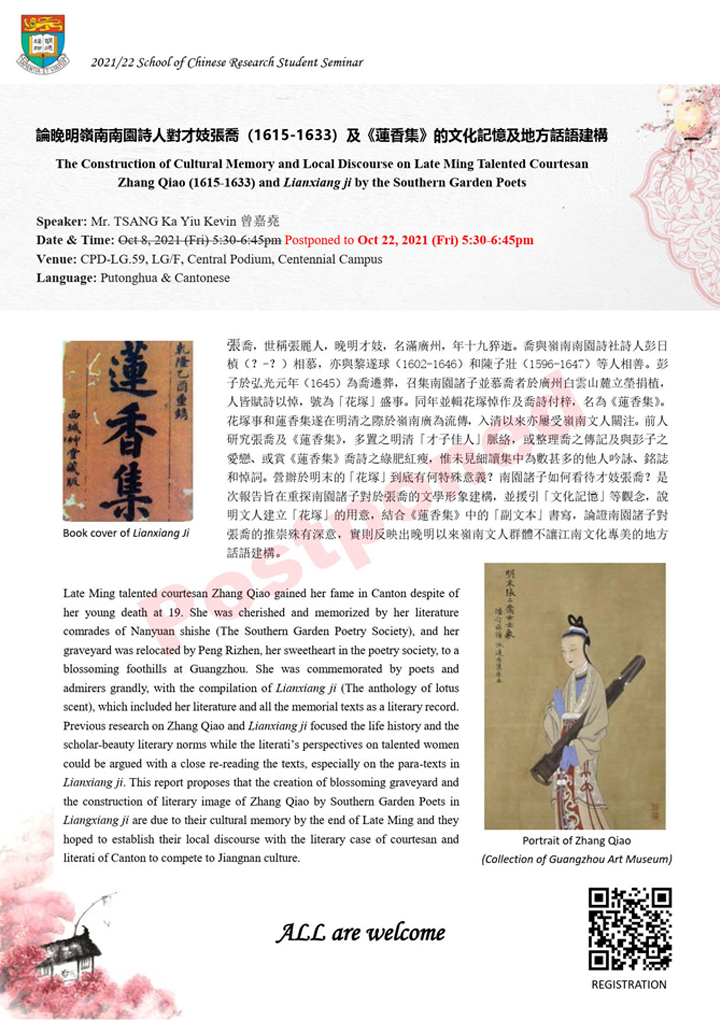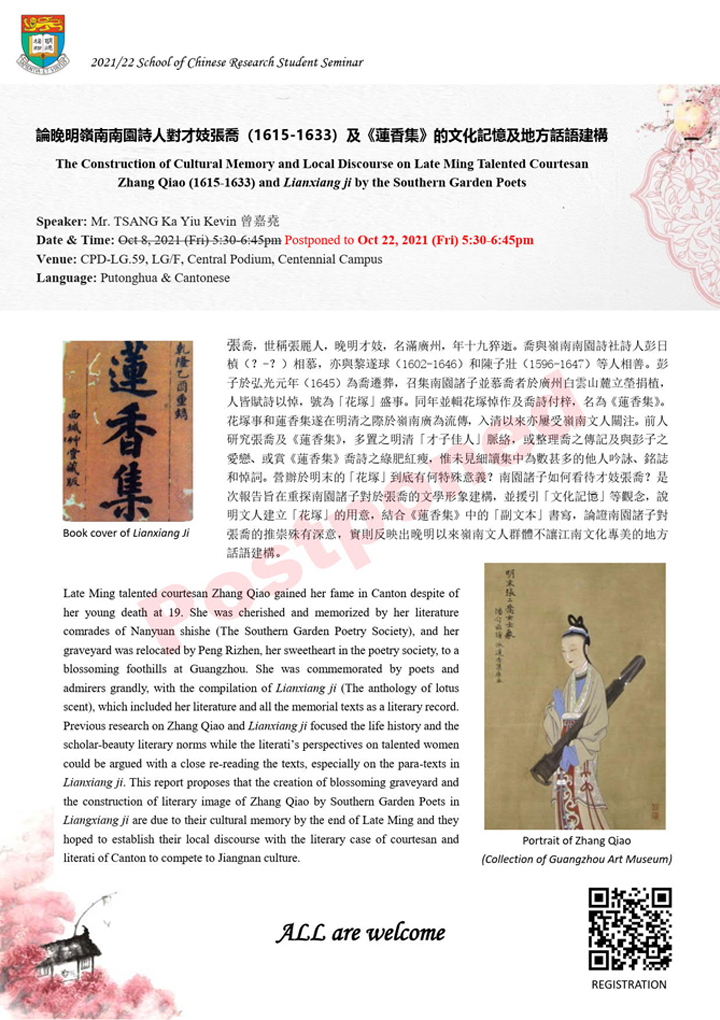論晚明嶺南南園詩人對才妓張喬(1615-1633)及《蓮香集》的文化記憶及地方話語建構 The Construction of Cultural Memory and Local Discourse on Late Ming Talented Courtesan Zhang Qiao (1615-1633) and Lianxiang ji by the Southern Garden Poets

2021/22 School of Chinese Research Student Seminar
論晚明嶺南南園詩人對才妓張喬(1615-1633)及《蓮香集》的文化記憶及地方話語建構
The Construction of Cultural Memory and Local Discourse on Late Ming Talented Courtesan
Zhang Qiao (1615-1633) and Lianxiang ji by the Southern Garden Poets
Speaker: Mr. TSANG Ka Yiu Kevin曾嘉堯
Rescheduled Date & Time: Oct 22, 2021 (Fri) 5:30-6:45pm
Venue: CPD-LG.59, LG/F, Central Podium, Centennial Campus
Language: Putonghua & Cantonese
張喬,世稱張麗人,晚明才妓,名滿廣州,年十九猝逝。喬與嶺南南園詩社詩人彭日楨(?-?)相慕,亦與黎遂球(1602-1646)和陳子壯(1596-1647)等人相善。彭子於弘光元年(1645)為喬遷葬,召集南園諸子並慕喬者於廣州白雲山麓立塋捐植,人皆賦詩以悼,號為「花塚」盛事。同年並輯花塚悼作及喬詩付梓,名為《蓮香集》。花塚事和蓮香集遂在明清之際於嶺南廣為流傳,入清以來亦屢受嶺南文人關注。前人研究張喬及《蓮香集》,多置之明清「才子佳人」脈絡,或整理喬之傳記及與彭子之愛戀、或賞《蓮香集》喬詩之綠肥紅瘦,惟未見細讀集中為數甚多的他人吟詠、銘誌和悼詞。營辦於明末的「花塚」到底有何特殊意義?南園諸子如何看待才妓張喬?是次報告旨在重探南園諸子對於張喬的文學形象建構,並援引「文化記憶」等觀念,說明文人建立「花塚」的用意,結合《蓮香集》中的「副文本」書寫,論證南園諸子對張喬的推崇殊有深意,實則反映出晚明以來嶺南文人群體不讓江南文化專美的地方話語建構。
Late Ming talented courtesan Zhang Qiao gained her fame in Canton despite of her young death at 19. She was cherished and memorized by her literature comrades of Nanyuan shishe (The Southern Garden Poetry Society), and her graveyard was relocated by Peng Rizhen, her sweetheart in the poetry society, to a blossoming foothills at Guangzhou. She was commemorated by poets and admirers grandly, with the compilation of Lianxiang ji (The anthology of lotus scent), which included her literature and all the memorial texts as a literary record. Previous research on Zhang Qiao and Lianxiang ji focused the life history and the scholar-beauty literary norms while the literati’s perspectives on talented women could be argued with a close re-reading the texts, especially on the para-texts in Lianxiang ji. This report proposes that the creation of blossoming graveyard and the construction of literary image of Zhang Qiao by Southern Garden Poets in Liangxiang ji are due to their cultural memory by the end of Late Ming and they hoped to establish their local discourse with the literary case of courtesan and literati of Canton to compete to Jiangnan culture.
ALL are welcome*
*Pre-registration (Click HERE) is requested for future communication in case of cancellation. NO walk-in is allowed.








